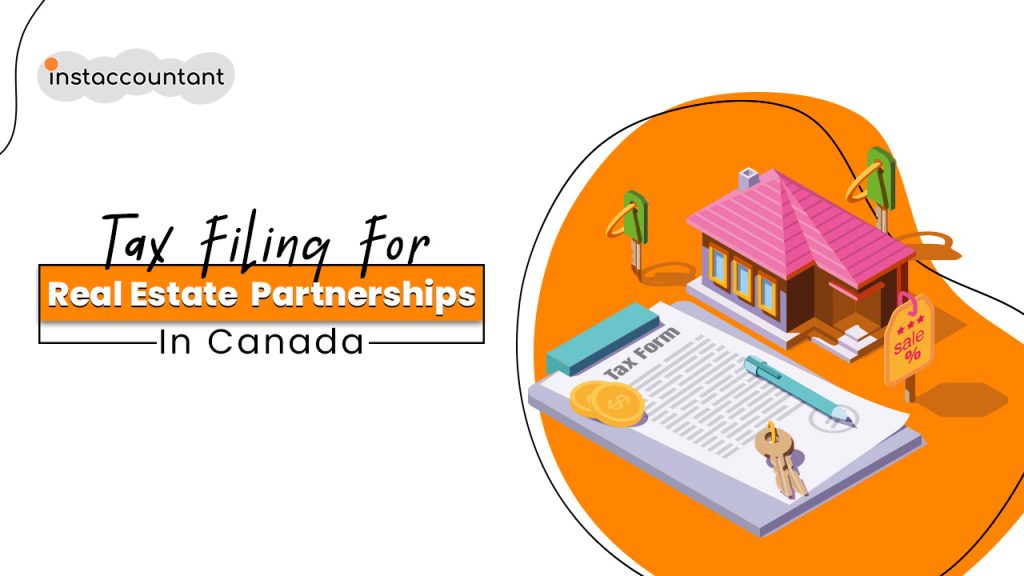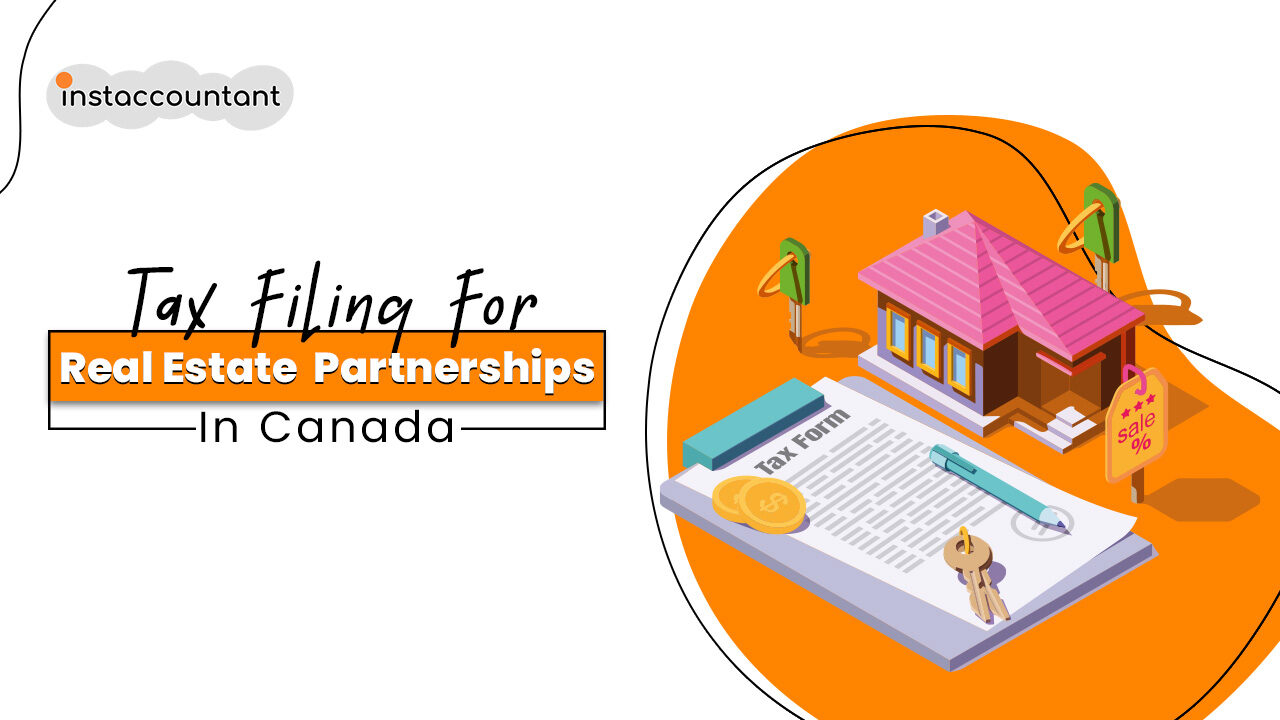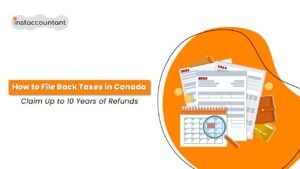Real estate investing can be a great way to build wealth and achieve your financial goals. But what if you don’t have enough money to buy a property on your own? Or what if you want to share the risks and responsibilities with someone else? In that case, you might consider partnering up with another investor.

There are different ways to invest in real estate with a partner, such as forming a joint venture, a corporation, or a partnership. Each option has its own advantages and disadvantages, but here, we’ll focus on partnerships. This guide will detail how partnerships work for real estate investors in Canada and what you need to know about the tax implications of this option.
What is a Partnership in Canada
A partnership is a legal relationship between two or more people who agree to carry on a business together. Each partner contributes money, property, skills, or services to the business and shares in the profits and losses.
A partnership can be either general or limited. In a general partnership, all partners have equal rights and responsibilities and are personally liable for the debts and obligations of the business. In a limited partnership, there are two types of partners: general partners, who manage the business and are personally liable, and limited partners, who invest money but have no say in the management and are not personally liable.
Tax Implications of Partnership in Canada
If you are thinking of forming a partnership in Canada, you need to know how this business structure affects your taxes. Unlike corporations, partnerships do not pay income tax at the entity level. Rather, the income or loss of the partnership is allocated to each partner according to their share of the partnership agreement. Each partner then reports their portion of the partnership income or loss on their personal tax return. This way, the partnership income is taxed only once, at the individual level. However, different types of partnerships have different tax rules and reporting requirements.
How to Invest in Real Estate as a Partnership
Real estate partnerships are a popular way to invest in property in Canada, but they come with some tax considerations. You need to choose the right structure for your partnership, depending on your goals and preferences. Here are two common examples:
Example 1: Investing in a Rental Property Together
Let’s say you and your friend Mr. A want to buy a rental property together. You decide to form a general partnership and agree on the following terms:
- Ownership Share: You contribute 60% of the money, and A contributes 40%. This means you own 60% of the property, and Mr. A owns 40%.
- Sharing Income and Expenses: When you rent out the property, the rental income and expenses (like maintenance, property taxes, and repairs) are shared according to your ownership percentages. So, if the property earns $1,000 in rent, you’d get $600 (60%) and A would get $400 (40%).
- Reporting Income and Expenses: The partnership income and expenses are reported on Form T2125, Statement of Business or Professional Activities. This form is part of your personal tax return. The type of income and expenses you report depends on the nature of your real estate business.
- Tax Implications: The partnership itself doesn’t pay taxes. Instead, you and Mr. A report your respective shares of the rental income and expenses on your individual tax returns.
Example 2: Flipping a House Together
Now, let’s say you and Mr. A want to buy a fixer-upper house, renovate it, and sell it for a profit. You decide to form a limited partnership and agree on the following terms:
- Roles and Responsibilities: You agree that Mr. A will manage the renovations, and you’ll handle the financial side. You also agree on how profits will be split.
- Buying and Selling: The partnership purchases the house. After the renovations are complete, you sell it.
- Profit Sharing: If you make a $30,000 profit, you’d split it according to your ownership percentages. You’d get $18,000 (60%) and A would get $12,000 (40%).
- Tax Implications: As with the rental property, the partnership doesn’t pay taxes. You and Mr. A report your shares of the profit on your individual tax returns.
How to File Your Taxes as a Partnership
As we mentioned earlier, partnerships don’t pay taxes themselves. Instead, they file an information return called Form T5013 – Statement of Partnership Income. This form shows how much income and expenses the partnership earned or incurred during the year and how they are allocated among the partners.
Each partner then receives a copy of Form T5013 slip – Statement of Partnership Income Allocation and Designations. This slip shows how much income and expenses each partner has to report on their personal tax return.
The partners report their share of income from the partnership on line 12200 – Gross business income or line 13500 – Gross professional income of their T1 return. They also deduct their share of expenses from the partnership on line 16200 – Gross business or professional income or line 13700 – Net professional income of their T1 return.
Depending on the type of income or expense, they may also have to report it on other forms or schedules. For example, if they receive rental income from the partnership, they have to report it on Form T776 – Statement of Real Estate Rentals. If they incur capital gains or losses from selling the property, they have to report them on Schedule 3 – Capital Gains (or Losses).
Tips for Investing in Real Estate as a Partnership
Investing in real estate as a partnership can be rewarding but also challenging. Here are some tips to help you succeed:
- Have a clear partnership agreement that outlines how decisions will be made, how profits will be shared, and what happens if one partner wants to leave. This helps prevent misunderstandings down the road.
- Consult a legal or financial advisor before forming a partnership. They can help you choose the best structure for your situation and advise you on tax implications.
- Keep good records of your income and expenses from the partnership. You’ll need them to file your taxes and to track your performance.
- Communicate regularly with your partner and resolve any issues as soon as possible. A good partnership is based on trust and respect.
Conclusion
Investing in real estate with a partner can be a great way to diversify your portfolio, leverage your resources, and share the risks and rewards. However, it also comes with some challenges and responsibilities. As a partner, you need to understand how partnerships work in Canada, how to file your taxes as a partner, and how to maintain a healthy relationship with your partner. These are essential skills for running a successful and profitable partnership. It is advisable to consult with legal and financial experts to help you set up and manage your partnership in accordance with the CRA rules and regulations.




